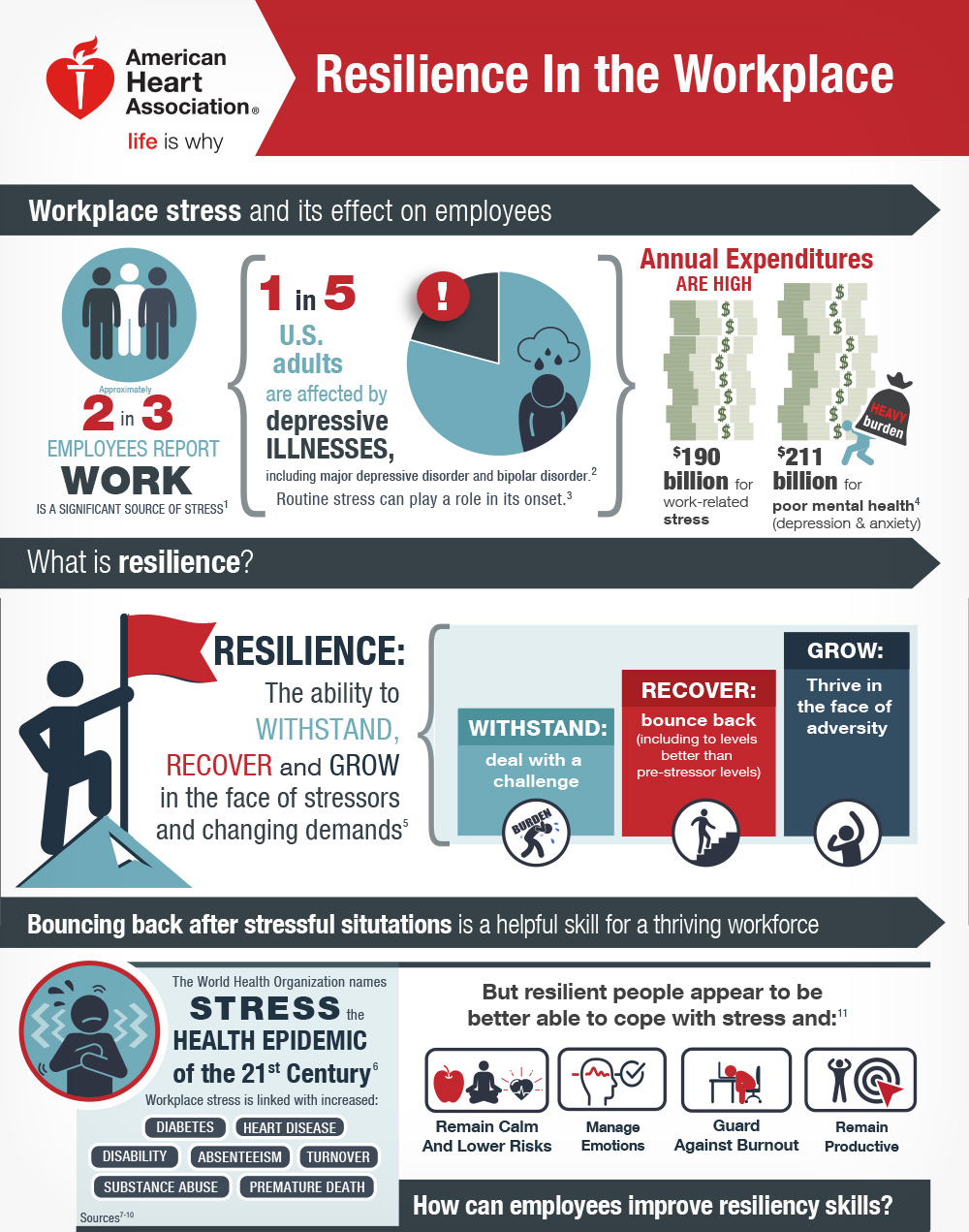
New report from the American Heart Association provides actionable guidance for employers seeking to implement resilience training.
The American Heart Association (AHA) CEO Roundtable today releases “Resilience in the Workplace,” an evidence review report with practical guidance for employers looking to implement resilience training programs. With two-thirds of employees citing work as a significant source of stress,1 employers are seeking novel approaches like resilience training to improve employee’s overall health, productivity and organizational performance. The CEO Roundtable is the AHA’s leadership collaborative with 30-plus member CEOs who represent some of the nation’s largest employers who are committed to applying evidence-based approaches to improve their employees’ overall health.
The American Heart Association Center for Workplace Health Research and Evaluation assessed peer-reviewed literature that suggests resilience training programs may be a useful primary prevention tactic for employees to reduce stress and depression in the workplace. Resilience training aims to develop or strengthen a person’s ability to withstand, recover and bounce back from adversity and may improve the ability to cope with, and recover from negative workplace stressors.
Employee participants in workplace resilience training programs self-reported positive outcomes according to an online employee survey of 1,001 working adults within the United States conducted by Harris Poll and included in the “Resilience in the Workplace” report. Seventy-three percent also say their participation has improved their health a great deal or fair amount. Specific health outcomes reported by participants included having more energy (51%), exercising regularly (45%), and improved quality of life (41%).
“For decades, the American Heart Association has been a trusted partner for companies looking to implement credible health programs and services for their employees,” said Nancy Brown, CEO of the American Heart Association. “On behalf of our CEO Roundtable, we are delighted to share this resource to help organizations build healthier workplaces, particularly in the new economy where emerging strategies are essential to integrate overall health and well-being for employees.”
“As employers are broadening their wellness programs to encompass well-being, this paper provides actionable strategies for effective workplace resilience programs,” said Kathy Gerwig, Vice President, Employee Safety, Health and Wellness and Environmental Stewardship Officer at Kaiser Permanente. Kaiser Permanente CEO Bernard J. Tyson is a founding member of the AHA CEO Roundtable.
Featured case studies from CEO Roundtable member companies, who met today at their annual meeting, examine resilience training as part of broader strategies to reduce job strain and decrease negative outcomes of stress.
Future research is necessary to better define resilience, measure it accurately and understand the mechanisms through which resilience leads to improved health and work performance outcomes. To learn more visit healthmetrics.heart.org.